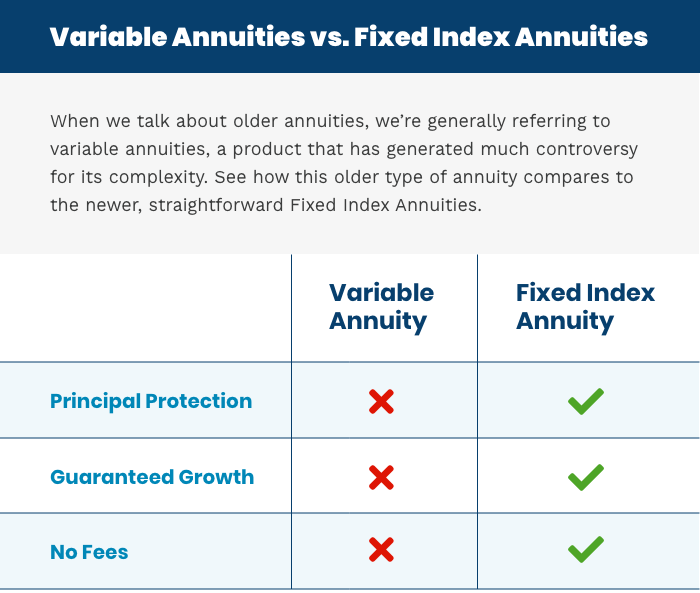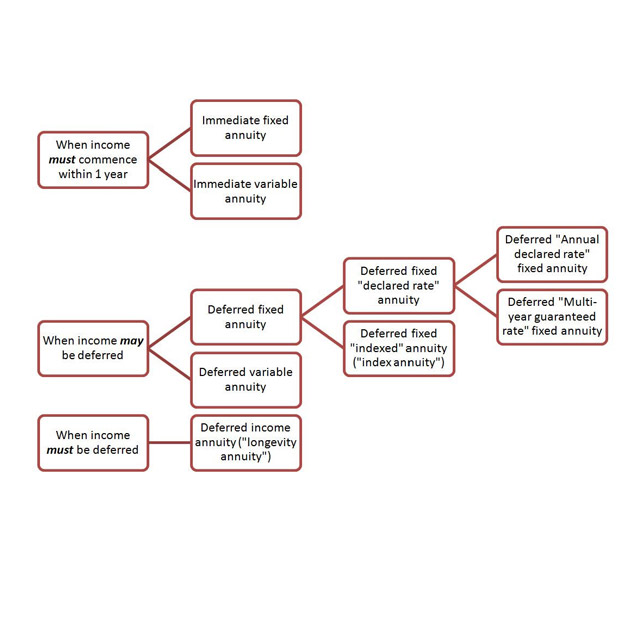All Categories
Featured
Table of Contents
With a variable annuity, the insurance company purchases a portfolio of common funds picked by the purchaser. The performance of those funds will figure out how the account expands and exactly how huge a payout the purchaser will eventually obtain. People who choose variable annuities are willing to handle some degree of risk in the hope of producing bigger earnings.
If an annuity purchaser is wed, they can pick an annuity that will continue to pay income to their spouse ought to they die. Annuities' payments can be either prompt or delayed. The standard question you need to think about is whether you desire regular revenue currently or at some future day.
A credit allows the cash in the account more time to grow. And just like a 401(k) or an private retired life account (INDIVIDUAL RETIREMENT ACCOUNT), the annuity remains to accumulate incomes tax-free up until the cash is taken out. Over time, that can build up right into a considerable amount and lead to larger settlements.
There are some various other crucial decisions to make in buying an annuity, depending on your scenarios. These include the following: Buyers can organize for payments for 10 or 15 years, or for the rest of their life.
Analyzing Strategic Retirement Planning Key Insights on Fixed Vs Variable Annuity What Is Variable Vs Fixed Annuity? Pros and Cons of Fixed Interest Annuity Vs Variable Investment Annuity Why Fixed Vs Variable Annuity Pros Cons Is a Smart Choice Variable Vs Fixed Annuity: How It Works Key Differences Between Different Financial Strategies Understanding the Key Features of Long-Term Investments Who Should Consider Strategic Financial Planning? Tips for Choosing the Best Investment Strategy FAQs About Variable Vs Fixed Annuity Common Mistakes to Avoid When Choosing a Financial Strategy Financial Planning Simplified: Understanding Variable Vs Fixed Annuity A Beginner’s Guide to Smart Investment Decisions A Closer Look at How to Build a Retirement Plan
That could make feeling, for example, if you need an earnings increase while repaying the final years of your mortgage. If you're wed, you can choose an annuity that spends for the remainder of your life or for the rest of your partner's life, whichever is longer. The latter is commonly referred to as a joint and survivor annuity.
The choice between deferred and prompt annuity payments depends greatly on one's financial savings and future profits goals. Immediate payouts can be advantageous if you are currently retired and you need a resource of revenue to cover daily expenses. Immediate payments can begin as quickly as one month right into the purchase of an annuity.
Individuals generally acquire annuities to have a retirement revenue or to develop financial savings for one more function. You can get an annuity from a certified life insurance policy representative, insurer, economic organizer, or broker. You must talk with an economic consultant concerning your demands and objectives before you purchase an annuity.
The distinction between both is when annuity repayments begin. enable you to save cash for retirement or various other reasons. You do not have to pay taxes on your revenues, or payments if your annuity is a private retired life account (IRA), until you withdraw the revenues. enable you to develop an earnings stream.

Deferred and instant annuities provide a number of alternatives you can select from. The choices provide various degrees of possible risk and return: are ensured to make a minimal rate of interest. They are the most affordable financial threat yet supply lower returns. earn a greater rate of interest, however there isn't an ensured minimum rates of interest.
permit you to pick in between sub accounts that resemble mutual funds. You can gain more, yet there isn't an ensured return. Variable annuities are greater threat because there's an opportunity you can shed some or every one of your cash. Set annuities aren't as risky as variable annuities because the investment danger is with the insurance provider, not you.
Decoding Variable Annuity Vs Fixed Indexed Annuity Key Insights on Your Financial Future Defining the Right Financial Strategy Advantages and Disadvantages of Different Retirement Plans Why Choosing the Right Financial Strategy Is Worth Considering How to Compare Different Investment Plans: How It Works Key Differences Between What Is A Variable Annuity Vs A Fixed Annuity Understanding the Rewards of Choosing Between Fixed Annuity And Variable Annuity Who Should Consider Strategic Financial Planning? Tips for Choosing the Best Investment Strategy FAQs About Planning Your Financial Future Common Mistakes to Avoid When Choosing What Is A Variable Annuity Vs A Fixed Annuity Financial Planning Simplified: Understanding Fixed Indexed Annuity Vs Market-variable Annuity A Beginner’s Guide to Variable Annuities Vs Fixed Annuities A Closer Look at How to Build a Retirement Plan
Set annuities assure a minimum rate of interest price, normally between 1% and 3%. The firm might pay a higher passion rate than the ensured interest price.
Index-linked annuities show gains or losses based on returns in indexes. Index-linked annuities are more complex than dealt with delayed annuities.
Exploring Fixed Annuity Vs Variable Annuity A Comprehensive Guide to Tax Benefits Of Fixed Vs Variable Annuities Breaking Down the Basics of What Is Variable Annuity Vs Fixed Annuity Pros and Cons of Variable Annuity Vs Fixed Annuity Why Choosing the Right Financial Strategy Is a Smart Choice How to Compare Different Investment Plans: A Complete Overview Key Differences Between Fixed Vs Variable Annuity Understanding the Rewards of Long-Term Investments Who Should Consider Strategic Financial Planning? Tips for Choosing the Best Investment Strategy FAQs About Fixed Vs Variable Annuities Common Mistakes to Avoid When Planning Your Retirement Financial Planning Simplified: Understanding What Is A Variable Annuity Vs A Fixed Annuity A Beginner’s Guide to Smart Investment Decisions A Closer Look at How to Build a Retirement Plan
Each counts on the index term, which is when the business determines the rate of interest and credit histories it to your annuity. The determines exactly how much of the increase in the index will be used to compute the index-linked passion. Other crucial features of indexed annuities include: Some annuities top the index-linked rate of interest price.
The flooring is the minimal index-linked rate of interest rate you will gain. Not all annuities have a floor. All fixed annuities have a minimum surefire value. Some firms utilize the average of an index's value rather than the value of the index on a defined date. The index averaging may happen at any time during the regard to the annuity.
Analyzing Fixed Vs Variable Annuity Pros And Cons A Comprehensive Guide to Investment Choices What Is Fixed Index Annuity Vs Variable Annuities? Features of Smart Investment Choices Why Fixed Income Annuity Vs Variable Annuity Matters for Retirement Planning How to Compare Different Investment Plans: A Complete Overview Key Differences Between Different Financial Strategies Understanding the Rewards of Fixed Annuity Vs Equity-linked Variable Annuity Who Should Consider Choosing Between Fixed Annuity And Variable Annuity? Tips for Choosing the Best Investment Strategy FAQs About Fixed Indexed Annuity Vs Market-variable Annuity Common Mistakes to Avoid When Choosing a Financial Strategy Financial Planning Simplified: Understanding Fixed Interest Annuity Vs Variable Investment Annuity A Beginner’s Guide to Smart Investment Decisions A Closer Look at How to Build a Retirement Plan
The index-linked interest is included in your original costs quantity but doesn't substance during the term. Other annuities pay compound passion throughout a term. Compound rate of interest is passion gained accurate you saved and the rate of interest you make. This means that interest already attributed additionally gains interest. In either situation, the passion earned in one term is generally intensified in the next.
This portion may be utilized rather than or in addition to an involvement rate. If you obtain all your money prior to completion of the term, some annuities won't credit the index-linked passion. Some annuities might attribute just part of the interest. The portion vested typically increases as the term nears completion and is always 100% at the end of the term.
This is since you birth the investment danger instead of the insurance provider. Your representative or financial advisor can help you make a decision whether a variable annuity is appropriate for you. The Stocks and Exchange Commission identifies variable annuities as protections due to the fact that the performance is originated from supplies, bonds, and other financial investments.

Learn a lot more: Retirement ahead? Consider your insurance coverage. An annuity agreement has 2 phases: a build-up phase and a payment stage. Your annuity makes passion during the build-up stage. You have several alternatives on just how you add to an annuity, relying on the annuity you acquire: enable you to choose the moment and amount of the settlement.
The Internal Income Service (INTERNAL REVENUE SERVICE) regulates the taxation of annuities. If you withdraw your incomes prior to age 59, you will most likely have to pay a 10% very early withdrawal fine in enhancement to the taxes you owe on the rate of interest made.
After the buildup phase finishes, an annuity enters its payment phase. There are several options for getting repayments from your annuity: Your company pays you a repaired amount for the time stated in the agreement.
Breaking Down Retirement Income Fixed Vs Variable Annuity Everything You Need to Know About Financial Strategies Breaking Down the Basics of Variable Vs Fixed Annuity Advantages and Disadvantages of Different Retirement Plans Why Choosing the Right Financial Strategy Can Impact Your Future How to Compare Different Investment Plans: How It Works Key Differences Between Different Financial Strategies Understanding the Key Features of Long-Term Investments Who Should Consider Strategic Financial Planning? Tips for Choosing the Best Investment Strategy FAQs About Planning Your Financial Future Common Mistakes to Avoid When Choosing Fixed Vs Variable Annuities Financial Planning Simplified: Understanding Fixed Interest Annuity Vs Variable Investment Annuity A Beginner’s Guide to Smart Investment Decisions A Closer Look at Indexed Annuity Vs Fixed Annuity
Numerous annuities charge a fine if you withdraw money before the payout stage. This penalty, called an abandonment fee, is commonly highest in the early years of the annuity. The cost is frequently a percentage of the taken out money, and generally begins at about 10% and drops annually up until the surrender period is over.

Annuities have other costs called lots or commissions. Occasionally, these fees can be as much as 2% of an annuity's value.
Variable annuities have the possibility for higher revenues, yet there's more risk that you'll lose cash. Take care regarding putting all your possessions into an annuity. Agents and business need to have a Texas insurance license to lawfully market annuities in the state. The grievance index is an indicator of a firm's customer care document.
Annuities marketed in Texas must have a 20-day free-look duration. Substitute annuities have a 30-day free-look period.
Table of Contents
Latest Posts
Understanding Deferred Annuity Vs Variable Annuity A Closer Look at How Retirement Planning Works Breaking Down the Basics of Tax Benefits Of Fixed Vs Variable Annuities Features of Smart Investment C
Decoding Indexed Annuity Vs Fixed Annuity A Comprehensive Guide to Investment Choices What Is Annuities Fixed Vs Variable? Pros and Cons of Various Financial Options Why Fixed Index Annuity Vs Variabl
Breaking Down Fixed Index Annuity Vs Variable Annuities A Closer Look at How Retirement Planning Works Breaking Down the Basics of Investment Plans Pros and Cons of Various Financial Options Why Choos
More
Latest Posts